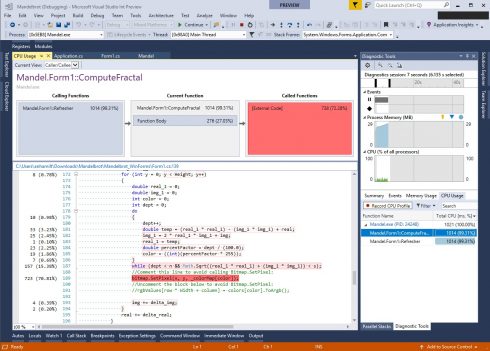
Microsoft has announced the preview to the next minor update to Visual Studio 2017. Visual Studio 2017 version 15.6 will feature improvements to diagnostics, productivity, C++ development, Python development, Test Explorer, Azure development, and WCF Connected Services. A more detailed list of features is available here.
React’s RFC process
React is introducing a new request for comments process to enable more core team members and community members to collaborate on new features. With the new process, anyone can submit RFCs and contribute to issues, bugfixes, code changes, documentation as well as indicate changes that should receive additional review before implementation.
“Generally, any idea that would benefit from additional review or design before being implemented is a good candidate for an RFC. As a rule of thumb, this means any proposal that adds, changes, or removes a React API,” Andrew Clark, React team member, wrote in a post.
Salesforce joins the Cloud Native Computing Foundation as a Gold member
Salesforce is the latest company to join the Cloud Native Computing Foundation as a Gold member. Joining will provide Salesforce engineers with the support needed to collaborate on critical projects.
“We’re thrilled to be supporting the foundation that underlies much of our next generation infrastructure,” said Randy Kern, EVP of Infrastructure at Salesforce. “The CNCF technologies are an exciting addition to our distributed systems architecture. We look forward to contributing to these technologies and participating in the community.”
Let’s Encrypt lays out its roadmap for 2018
Let’s Encrypt has detailed its roadmap for 2018. It plans to double the number of active certificates and unique domains its services. It hopes to drive HTTPS adoption by providing a free and easy to use way to obtain the certificates needed for HTTPS. Let’s Encrypt also plans to introduce an ACME v2 protocol API endpoint as well as support for wildcard certificates. In 2018 it will add additional compute servers and start aging out hardware that has been in place since launch.
“The Web went from 46% encrypted page loads to 67% according to statistics from Mozilla – a gain of 21% in a single year – incredible,” said Josh Aas, ISRG executive director of Let’s Encrypt. “We’re proud to have contributed to that, and we’d like to thank all of the other people and organizations who also worked hard to create a more secure and privacy-respecting Web.”






